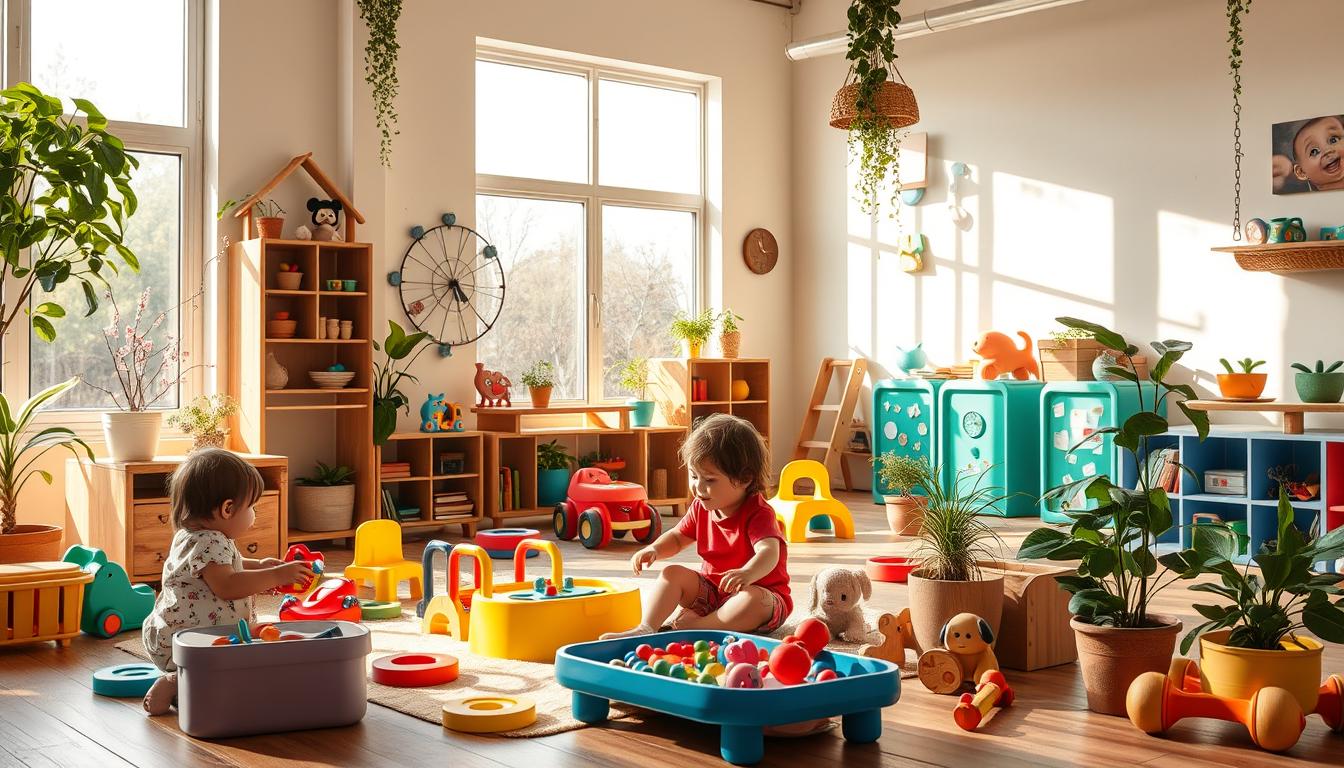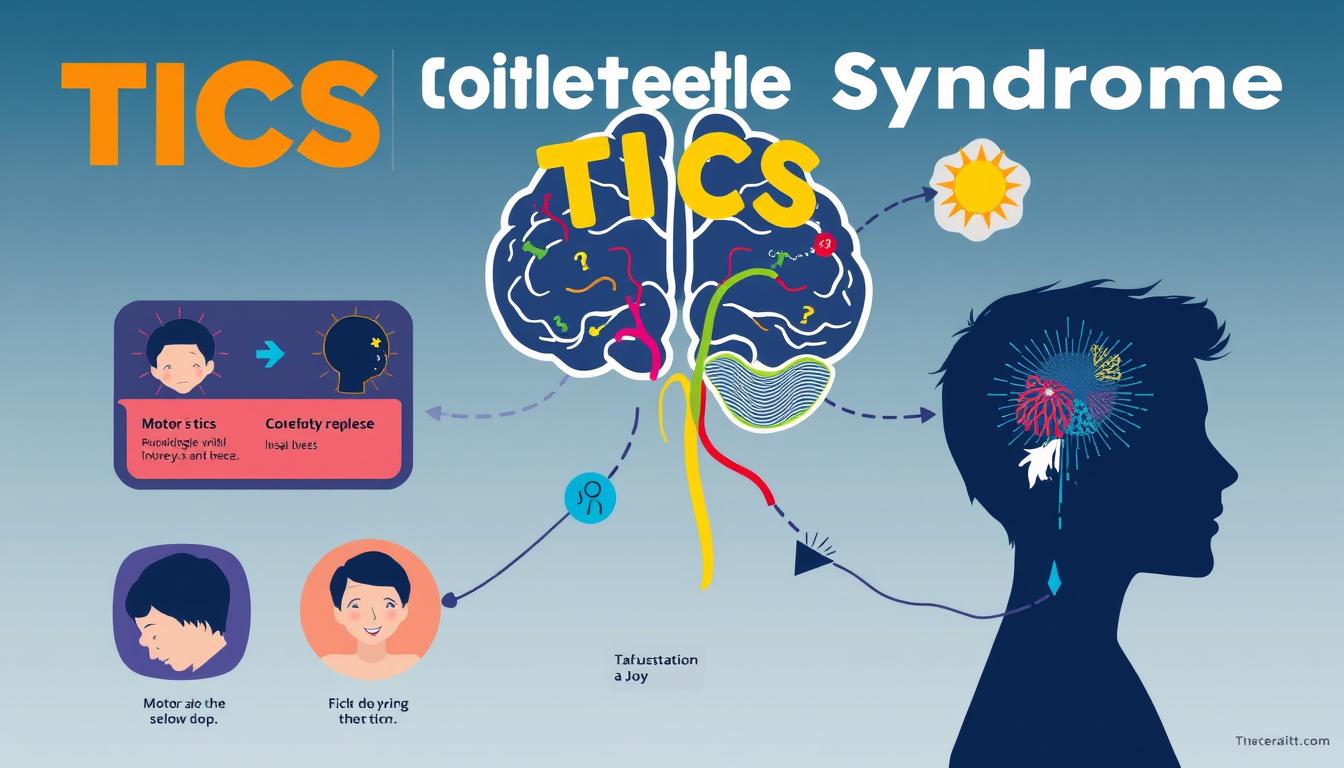The early years of a child’s life are key in shaping their mental health. Early childhood development is very important. It affects a child’s emotional strength, social skills, and mental health for life.
Exploring early child development shows how the first years set the stage for mental health. You’ll learn about brain growth, emotional control, and social skills. These are the basics for a healthy mind later on.
Key Takeaways
- Early childhood development lays the groundwork for long-term mental health success.
- Critical brain development stages during the formative years shape emotional regulation and social skills.
- Nurturing experiences in the early years create a foundation for psychological resilience.
- Understanding the importance of early childhood development is crucial for promoting mental well-being.
- Investing in the cognitive, emotional, and social development of young children has far-reaching benefits.
Understanding the Importance of Early Childhood Development for Long-term Mental Health
Early brain development is key for emotional and social skills. These skills are vital for mental health later on. In the early years, kids grow their brains fast and learn to manage feelings and interact with others.
Critical Brain Development Stages
In the first years, a child’s brain grows a lot, making trillions of connections. This growth is crucial for thinking, behaving, and feeling. Good care and a rich environment help kids develop well and stay mentally healthy.
Foundation for Emotional Regulation
Early years are important for learning to control emotions. Kids start to understand and handle their feelings. This helps them deal with life’s ups and downs and stay mentally balanced.
Social Skills Formation
At the same time, kids learn important social skills. They learn to talk, work together, and make friends. These skills are good for mental health and help kids develop empathy and solve problems.
Early experiences shape brain growth, emotional control, and social skills. This is why early care and support are so important. They help kids grow up with good mental health.
“The first three years of life are a period of incredible growth in all areas of a baby’s development. A newborn’s brain is about 25 percent of its approximate adult size. It doubles in size in the first year and by age 3 it reaches 80 percent of its adult volume.”
The Role of Secure Attachment in Mental Well-being
Secure attachment is key to your mental health, as attachment theory shows. A nurturing environment in your early years helps you grow emotionally smart and mentally healthy.
Having a secure bond with your caregivers makes you feel safe and loved. This feeling helps you manage your feelings, form good relationships, and feel good about yourself. Without it, your mental health can suffer.
- Secure attachment helps you develop a positive self-image and sense of trust in others.
- It enables you to effectively manage your emotions and cope with stress and challenges.
- Secure attachment lays the groundwork for the formation of healthy social skills and relationships.
Creating a nurturing environment early on sets you up for life. It builds emotional intelligence and mental well-being. This helps you deal with life’s ups and downs, form strong bonds, and stay mentally healthy.
“The quality of early attachment relationships is one of the most important factors in determining a child’s emotional, social, and cognitive development.”
It’s vital for parents, caregivers, and professionals to understand secure attachment. They can then support healthy attachment. This helps the children they care for stay mentally well for years to come.

How Early Experiences Shape Emotional Intelligence
Emotional intelligence is key to mental health, and it starts in childhood. Understanding how early experiences shape this skill helps parents and caretakers. They can help grow self-awareness, empathy, and emotion management early on.
Building Self-awareness in Young Children
Self-awareness is the base of emotional intelligence. It lets kids know and understand their feelings. Encourage them to share their emotions and think about their actions.
Make sure they feel safe to explore their feelings. This is crucial for their growth.
Developing Empathy and Social Connection
Empathy is vital for emotional intelligence. It’s about understanding and sharing others’ feelings. Show kids how to be empathetic by modeling it yourself.
Help them see how others feel. Give them chances to play and interact with others. This helps them build strong relationships.
Managing Emotions from an Early Age
Teaching kids to manage their emotions is important. Show them ways to deal with feelings, like deep breathing or creative activities. This helps them handle life’s ups and downs.
Focus on emotional intelligence in early childhood. It sets the stage for a healthy life. By teaching self-awareness, empathy, and emotional management, we help kids grow into well-rounded individuals.

Prevention and Early Intervention Strategies
Helping children stay mentally healthy starts with spotting early signs and acting fast. By catching problems early, you can use the best ways to help your child. This keeps them happy and well.
Identifying Early Warning Signs
Watch for changes in your child’s mood, behavior, or how they interact with others. Signs like more anxiety, trouble controlling feelings, pulling away from friends, or doing poorly in school are red flags. Catching these early can greatly improve your child’s mental health later on.
Support Systems and Resources
There are many places and people ready to help with your child’s early years. Talk to your child’s doctor, school counselors, or local mental health experts. They can offer advice and help you find services that fit your child’s needs.
Professional Guidance Options
Sometimes, your child might need help from mental health experts. This could mean seeing a child therapist, psychologist, or family counselor. Getting professional help is not something to be ashamed of. It’s a smart move to support your child’s emotional health.



